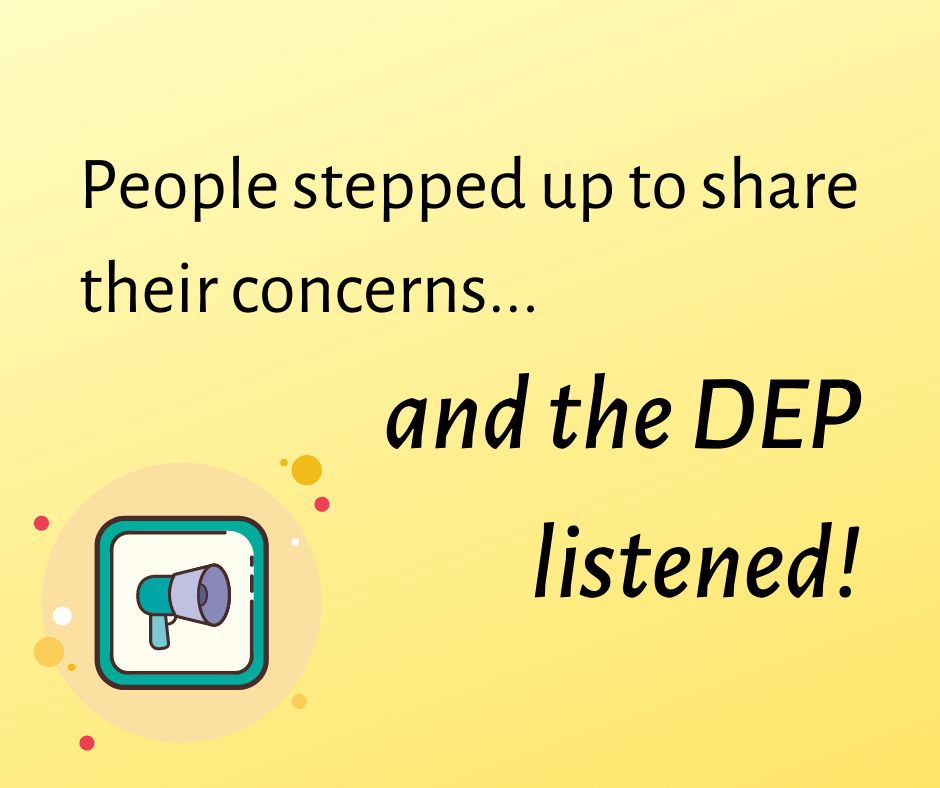
Citing the outpouring of concern from hundreds of local residents who raised their voices, the Department of Environmental Protection (DEP) has informed the Westmoreland Sanitary Landfill that they must provide more information about how they are planning to operate.
The Westmoreland Landfill has been and currently receives and stores shale gas drilling waste. In February 2020, the landfill applied with the DEP to modify its permit to install a 90,000-gallon process tank, a pump station, and piping to facilitate a leachate evaporator.
Landfills in Pennsylvania are not allowed to accept liquid waste, but leachate is a byproduct found in all landfills. Leachate is created when stormwater percolates through the waste. Shale gas drilling waste typically consists of soil, rock, and chemicals produced in the drilling and fracking process. It has been reported that the leachate at this landfill contains high concentrations of radioactivity. The radioactive material comes from radium 226 and 228, which naturally occurs when fracking waste is removed from a mile or deeper underground. These elements have been linked to several types of cancers, including bone cancer.
What the evaporator would do is burn up to 45,000 gallons of leachate a day. It would send numerous pollutants, including hazardous substances, into the air. This system, according to the DEP, would emit 16 tons of coarse and fine soot, 2 tons of nitrogen oxides, 2 tons of carbon monoxide, 1 ton of volatile organic compounds (VOCs), 400 pounds of sulfur dioxide, and 1,000 pounds of hazardous air pollutants per year.
After receiving the Westmoreland Landfill application, the DEP published its proposed air quality plan approval on May 9, 2020. This triggered a 30-day public comment period. The public voiced their thoughts and concerns about this application and the proposed air quality plan. Their questions varied from the type of waste being stored at the landfill, to how it will change over time, and the health implications for the surrounding communities. However, what was on many of these residents’ minds was how Westmoreland was going to contain and handle the radioactive material being stored and possibly emitted into the air.
It is rare when the DEP acknowledges public concern in a letter, especially in a letter addressed to the permittee (in this case, the Westmoreland Landfill) that expressly states that they need the permittee to do more research and submit more information to the DEP so they can answer the public’s questions. More specifically, the DEP asks the Westmoreland Landfill to provide information on how they (the Landfill) plan to process radiological contaminants in each step of the treatment. The letter also states that the information will be used to determine if the landfill can even dispose of such waste. This letter was sent to the Westmoreland Landfill on July 2, 2020, and they have 60 days to provide the requested information. For the DEP, this acknowledgment of local concerns should be a best practice. When people comment on an issue that so personally and overwhelmingly impacts them, they deserve to know how their comments are being considered in the decision-making process.
In times when we face hurdles to protect our health and environment, we mustn’t give up. This was apparent to the Westmoreland community. The residents have been organizing around this landfill for over a decade, documenting personal impacts and clear violations of the operating permits, and they’ve remained resilient through changes of landfill ownership and state administrations. These folks once again stepped up to share their concerns, and our state agency listened to them. Even though this might be seen as a small victory, we must remind ourselves to keep fighting for what is right for our families and for us. We can and we do make a difference with each action, no matter how simple it may seem. Our efforts are not going unnoticed and we must keep the pressure on the DEP to put our health and safety before private profits. Please reach out to Sarah Martik at smartik@centerforcoalfieldjustice.org to learn how to get more involved.
